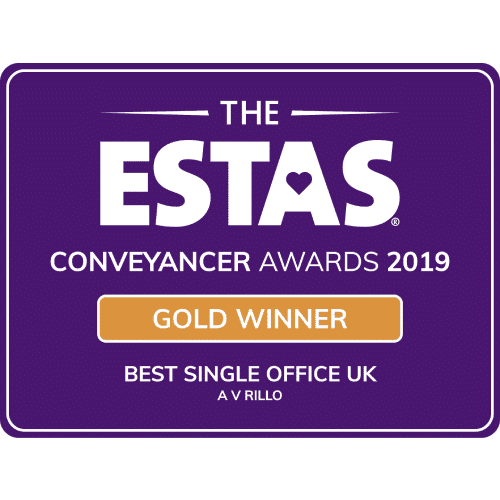

and start saving money now
and start saving money now
Get a FREE Conveyancing Quote
Award-Winning Conveyancing Lawyer In Shipley - AVRillo Conveyancers
Our award-winning conveyancer lawyers have years of experience in transferring legal ownership between buyer and seller of a property smoothly, safely, and securely, that too at affordable cost. Once you hand over the transfer work to us, our team takes care of the entire process and handles all the trouble that might come in between the process.
Residential Conveyancing Services in Shipley - We Make Your Move Cheaper, Safer And, More Secure!
 Free consultation and money-back guaranteeWhen most of our competitors charge even for the initial consultation, we kept it free for you. You can consult with our finest solicitors absolutely at no cost. We aim at providing the best conveyancing service in Shipley or nearby areas and therefore we strictly adhere to the quality assurance standards. We make sure that you are fully satisfied with our services before you continue.
Free consultation and money-back guaranteeWhen most of our competitors charge even for the initial consultation, we kept it free for you. You can consult with our finest solicitors absolutely at no cost. We aim at providing the best conveyancing service in Shipley or nearby areas and therefore we strictly adhere to the quality assurance standards. We make sure that you are fully satisfied with our services before you continue.
You can try our services for 30 days and decide if you want to continue or want a refund. You will get your entire money back if you are not satisfied. All the services you received within the trial period will not be chargeable. Best advisers on the UK’s real-estate The AVRillo conveyancers can provide the best advice on any conveyancing matters in Shipley. After working for years in the UK, our solicitors have gained valuable experience on how to make the transaction process faster.
Best advisers on the UK’s real-estate The AVRillo conveyancers can provide the best advice on any conveyancing matters in Shipley. After working for years in the UK, our solicitors have gained valuable experience on how to make the transaction process faster.
We have thorough knowledge about the local property market in detail, which helps you get a dispute-free property at the right price. Also, we offer convenient, efficient, and friendly conveyancing services to you in Shipley. No up-front paymentAVRillo ensures that you are comfortable in the transaction first before making any payment to us. Therefore, we do not charge you any advance payment prior to picking up your transaction. As a result, you don’t have to pay anything in advance. When you approach us, we don’t keep you waiting, instead start working immediately.
No up-front paymentAVRillo ensures that you are comfortable in the transaction first before making any payment to us. Therefore, we do not charge you any advance payment prior to picking up your transaction. As a result, you don’t have to pay anything in advance. When you approach us, we don’t keep you waiting, instead start working immediately. Less turnaround for processing and minimum hassleOur panel of conveyancers aims to make your process as straightforward as possible for you in Shipley. We focus on minimizing legal jargon to the least so that you can accomplish your transaction with minimal hassles and in the least time.
Less turnaround for processing and minimum hassleOur panel of conveyancers aims to make your process as straightforward as possible for you in Shipley. We focus on minimizing legal jargon to the least so that you can accomplish your transaction with minimal hassles and in the least time.
We try to involve you in the process as little as possible so that you stay away from any risky or cumbersome task. For example, reviewing the contract needs one to be highly cautious about it as not everyone is honest. If by any means a single point is missed out, you may be defrauded by the other party. Hence, we suggest you get the best conveyancing services as we have a higher success rate than most of our competitors. Sensibly affordable and trustworthyWe make your move to Shipley highly affordable. Our pricing structure for conveyancing services is extremely competitive in the market. We make sure that all your money is worth the service we provide.
Sensibly affordable and trustworthyWe make your move to Shipley highly affordable. Our pricing structure for conveyancing services is extremely competitive in the market. We make sure that all your money is worth the service we provide.
We have a brilliant track record of successful transactions throughout the year. So far, we have worked for thousands of satisfied clients who dropped their testimonials here acknowledging our work. We were awarded many times by many institutions that prove our excellence in handling cases of buying and selling properties in Shipley. Reliable security and confidentiality of data Documents of ownership are highly confidential and keeping them safe is not easy. We understand the sensitivity of the matter and therefore we have the latest and super secure system that ensures full protection from malware. Additionally, there is an information technology team to look after any security breach. All communication with the client through emails is encrypted and direct communication is kept private.
Reliable security and confidentiality of data Documents of ownership are highly confidential and keeping them safe is not easy. We understand the sensitivity of the matter and therefore we have the latest and super secure system that ensures full protection from malware. Additionally, there is an information technology team to look after any security breach. All communication with the client through emails is encrypted and direct communication is kept private.
Recent Reviews
Conveyancing in Shipley, Bradford, West Yorkshire: FAQs
What is a Title Register and a Title Plan?
The title register tells you the following things about the property:
- The previous owner of the property
- The price paid previously to buy it
- Charges or debts registered against the property
- Details about any rights of way over the property
The title plan is a map that will give you the following information:
- The location of the property
- The general boundaries of the property
Title Register and Title Plan are used to carry out Title searches. Your conveyancing lawyer will ask you to purchase both documents through the Land Registry website, which will cost you £3 each.
Does search cost different in every council?
Yes, each council or local authorities have their own cost to search and can have very different systems to produce them. Therefore, it may cost less than £30 to £300.
In some of the cases, a few legal companies have national agreements with search companies. Therefore, they get the benefit to pay a fixed price for the search, regardless of their own prices.
What does a conveyancer do after the searches are complete?
After the searches are complete, your conveyancing lawyer will review the details of each search and then send you a detailed report highlighting any potential issues that require your attention.
The issues may include flood risks, proof of subsidence in the area, any mandatory purchase orders or enforcement notices, and any sort of construction to be undertaken by the local authority, which could affect the property.
If anything comes up in the searches as stated above, you can use this opportunity to renegotiate the price you are paying for the property. For instance, if you have to pay for maintenance of a private drainage system you can ask the seller to reduce that amount in the selling price.
After both, you and your mortgage lender are satisfied with the searches, both the parties in the sale can move to the next stage, i.e. the exchange of contracts.
When is pre-enquiry done?
Pre-contract enquiries are done before the contracts are exchanged. It consists of enquiries related to the title, rights, and obligations over the property, and/or underlying land. Many of the enquiries are based on the Law Society’s standard forms.
What is included in pre-enquiry?
Following is the list of common pre-contract enquiries that are related to:
- Electricity connection, shared gas, drainage, and water supplies
- The boundary of the property and parking spaces allocation
- Restrictions on land use, such as rights of way and shared access
- History of construction and permission of building work
- Restrictions on property alteration
- Building regulations for the gas, electric, or windows construction
- Terms and costs of leasehold
- The Energy Performance Certificate (EPC) issues
How would I know if the property I am buying is liable for the cost of repairs to a parish church?
You can know about it through Chancel repair searches. A couple of decades ago, property owners rather than monasteries used to take the responsibility of repairing church chancels. After the law change in October 2013, the church must now establish and lodge liability with the Land Registry. However, in special cases, the church can still insist a property owner take the liability to repair even if the liability has not been registered. You can either opt for a chancel repair search that costs only a few pounds or take out Chancel repair insurance, which typically costs around £30.
What is LLC1?
The LLC1, a part of the local authority search, is also called Local Land Charge Register search. It includes charges or attendant restrictions relating to land or property. These can cover whether the property is:
- located in a conservation area
- a listed building
- subject to a tree protection order
- situated in a smoke control zone
- or in need of an improvement or renovation grant
The LLC also covers planning agreements and conditional planning permissions.
What is CON29?
The CON29 (a part of local search) provides information about the public highways, proposals for rail schemes, new roads, or planning decisions that might affect the property. Besides, you get information relating to outstanding statutory notices, breaches of planning or building regulations, or the existence of a compulsory purchase order. The area affected by environmental factors is also covered, such as whether the house stands on contaminated land or in a Radon gas.
Why do I need local searches?
Local searches have two benefits. First, it avoids the risk of unknown liabilities, which could be financial. Second, it provides information that could be useful to the purchaser.
The local search reveals if anything negative is recorded by the local council, against the property. Other than that, it also provides information about roads and other construction planning.
Local search becomes mandatory if you are looking to purchase a property, with a mortgage. It is compulsory to meet lender’s requirements.
Why shouldn’t I book my removals before the exchange date?
If you book your removals before the exchange date, and the other party unexpectedly backs off from the deal, or the date changes, you might lose the amount of your deposit or have to pay a cancellation fee.
We suggest you wait until you have exchanged contracts, even if you may want to book sooner. Once you exchange the contract, you will have the certainty that you will be moving on the date agreed on exchange.
Are there any other contaminants than chemical or mineral pollutants as environmental factors in searches?
Many environmental factors are there other than chemical or mineral pollutants The contamination also includes the proposed installation of mobile masts or the closeness of electricity pylons.
If the property is built on former industrial or agricultural land, the investigation will consider any known pollution that may exist in the topsoil or in the nearby region. Every possible environmental factor that may impact the property will be considered as part of the environmental searches. The conveyancer’s report on the title for the property will include all these details after an in-depth investigation.
When will I get full possession of the property purchased?
The completion day – the day when the remaining amount of the property purchased is handed over to the seller. Upon receiving the amount, the seller leaves the property and the buyer gets complete possession of the bought asset. The buyer usually collects the keys of the new property from the estate agents. The date of completion is decided on the day of contract exchange.
What charges are included in a normal conveyancing transaction?
The quote for normal conveyancing transactions consists of the conveyancing services fee, and other additional costs, such as land registry fee, and stamp duty.
What is the difference between local search, the local authority search, and the local land charges search?
They are all the same. The local search is also called the local authority search or the local land charges search. It is a report received from the local authority which contains information specifically about the property and the surrounding area.
- 24 / 7 Online Tracking
- Call Surgery
- Online Payment
- Quote App
- Our Team & Careers
- Conveyancing Today
- Get in touch
- Cheap conveyancing solicitors
- Online conveyancing quote
- Find a conveyancing solicitor
- Solicitors for house buying
- Residential Conveyancing
- Property Conveyancing
- Solicitor Costs For Buying a House
- House Conveyancing
- Conveyancing Guide
- Conveyancing Solicitor
- Residential Solicitors
- Conveyancing




















